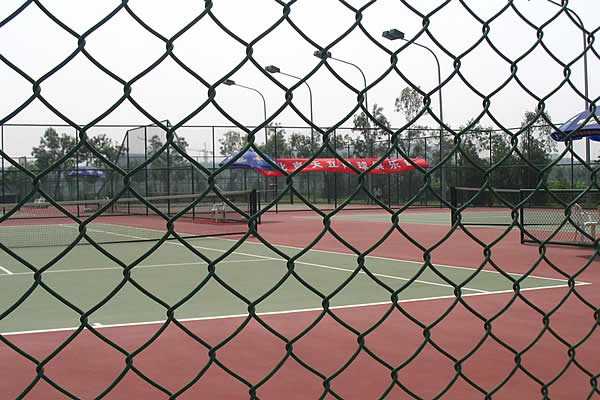 TEL:
+86-13102802206
TEL:
+86-13102802206
 Email:
fencenetting@china.com
Email:
fencenetting@china.com
 Language
Language
 TEL:
+86-13102802206
TEL:
+86-13102802206
 Email:
fencenetting@china.com
Email:
fencenetting@china.com
 Language
Language


The Significance of Steel Cord Wire in Modern Industries
Steel cord wire is a specialized type of wire made from high-strength steel filaments, commonly used in various applications across multiple industries, most notably in tire manufacturing. With its remarkable tensile strength and flexibility, steel cord wire has become an essential component in enhancing the durability and performance of tires, contributing significantly to both safety and efficiency on the road.
Composition and Manufacturing Process
Steel cord wire is primarily composed of high-carbon steel, which is treated to achieve the desired tensile strength and elasticity. The manufacturing process involves drawing steel into thin wires and then twisting them together to form a bundle. This bundled structure enhances the wire's strength and resistance to abrasion, making it suitable for the high-stress environments faced in automotive applications. The wires are then coated with a layer of brass or another metal to improve adhesion properties when combined with rubber during the tire production process.
Importance in Tire Manufacturing
The most significant application of steel cord wire is in the reinforcement of tires, particularly in truck and high-performance vehicle tires. The incorporation of steel cords helps to distribute the load evenly across the tire, which is crucial for maintaining structural integrity under heavy weights and varying road conditions. This reinforcement minimizes the risk of tire deformation, punctures, and blowouts, thus enhancing safety for drivers and passengers.
Moreover, tires reinforced with steel cord wire exhibit improved rolling resistance, allowing vehicles to achieve better fuel efficiency. This property is particularly vital in commercial transport sectors, where fuel costs constitute a large portion of operational expenses. Furthermore, steel cord wire tires provide superior traction, stability, and handling, which contribute to better driving performance, especially in challenging driving conditions.

Applications Beyond Tires
While tire manufacturing remains the most recognized application of steel cord wire, its utility extends to several other industries. For instance, the construction sector utilizes steel cord wire in various applications, including the production of concrete reinforcement products and other structural components. The high tensile strength of steel cord wire makes it an excellent choice for reinforcing materials that require additional strength and stability.
In the mining and heavy machinery industries, steel cord wire finds application in the manufacturing of belts and ropes used for lifting and transporting heavy loads. The robust nature of steel cord makes it ideal for scenarios where reliability and durability are critical, such as in cranes, elevators, and cable cars.
Environmental Considerations
As the global focus shifts towards sustainability, the steel cord wire industry is also adapting to incorporate more eco-friendly practices. Enhancements in the recycling of steel have led to a reduction in the carbon footprint associated with the production of steel cord wire. Many manufacturers are investing in technologies and processes that minimize waste and promote the reuse of materials. This transition not only benefits the environment but also results in cost savings for manufacturers.
Conclusion
In summary, steel cord wire plays an indispensable role in modern industries, particularly in tire manufacturing, where it significantly enhances performance, safety, and efficiency. Beyond tires, its applications are diverse, spanning construction and heavy machinery sectors, demonstrating its versatility and reliability. As industries continue to evolve and emphasize sustainability, steel cord wire will undoubtedly remain a vital component of innovative solutions that meet the demands of modern society. As technology advances, further developments in steel cord wire production and application are on the horizon, promising to revolutionize the industries that rely on its exceptional properties.